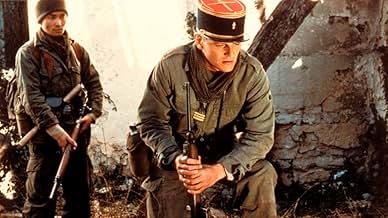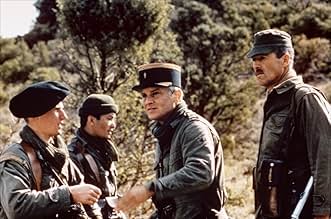The "real story" on which the movie is based is a bit more complicated than a simple reference to Kolwezi. Col. Erulin has served in Algeria and in 1958 a communist militant named Henri Alleg has published a book implicating Erulin (then Lieutenant) as one of the men who had tortured him after his arrest for acts of support to the FLN (a rebellious movement for the independance of Algeria). This book had a great (& divisive) !impact on public opinion in France, but no judicial action was taken, as an amnesty was granted in march 1962 for all participants in "order-keeping" actions of French forces in Algeria. Erulin continued his military career, and came to be the Colonel commanding the 2° REP (2° Régiment Étranger de Parachutistes) when in May 1978 the Regiment was ordered to jump on Kolwezi (Zaïre) in order to protect and evacuate the civilian population from Shaba (Katangese) rebels who had invaded the town, massacred and taken hostages many civilians. The operation was a resounding success but, while it was still going on in Zaïre, French TV programmed (in "Dossiers de l'Écran) a debate about the operation and its chief (Erulin). During this debate, René Andrieu (chief editor of the Communist newspaper "L'Humanité") made a specific accusation about Erulin, repeating Henri Alleg's allegations on Erulin's role in torturing him. Erulin did not deem this worthy of a response, but one year later he died of a heart attack while jogging. Following the media coverage of his burial, another journalist (Jean Planchais) wrote a Sept.1979 article making reference to the May 1978 "Dossiers de l'Écran" allegations, with the intent of reopening the debate in French opinion about torture in Algeria. The widow of Philippe Erulin then considered that she could not let the memory of her husband be sullied by unsubstantiated and repeated accusations. She sued René Andrieu for libel and she won her case. The film by Pierre Schoendorffer is an adaptation of the account of this trial. __ .
















